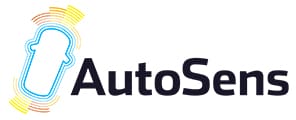Next in our series of short interviews with the shortlisted finalists for the inaugural AutoSens Awards 2017. We recently caught up with Jesse Sultanik, Marketing Manager for Argus Cyber Security who have been nominated for the “Software Innovation” Award.
How does it feel to be shortlisted for the Software Innovation category of the AutoSens Awards?
It’s always exciting for Argus to be recognized as a leader in automotive cyber security.
How would you explain your shortlisted innovation (Argus ECU Fingerprinting) to a technophobe?
Our ECU Fingerprinting technology identifies the source ECU of each message in the in-vehicle network. We use this information to identify and stop malicious messages coming from unauthorized ECUs in the in-vehicle network, making it much harder for cyber attacks to succeed. This ability, which examines the physical attributes of an ECU, is currently unparalleled in the automotive industry and is further testament to how Argus, through its award-winning cyber research team, enables secure connectivity in automobiles.
What makes Israel so special for startups in the automotive technology sector?
Israel is commonly referred to as “Startup Nation” due to its thriving high-tech sector and entrepreneurial spirit, led by veterans of the Israel Defense Forces’ (IDF) technology units. Many of young Israeli entrepreneurs have been successful in transforming expertise and experience gained from various military fields into commercial products.
In particular, alumni of IDF unit 8200 have taken a leading role in Israel’s entrepreneurial ecosystem based on the advanced knowledge of software development, cyber security and other technologies accumulated while serving. These same skills are required in many advanced industries like automotive cyber security. For example, three of Argus’ four founders are ex-officers from IDF unit 8200.
In addition to cyber security, the IDF provides real world experience in software, machine learning, optics, artificial intelligence, robotics, and other advanced technologies which have become integral to the future of mobility. This exposure at a young age has certainly contributed in a large way to the robust startup ecosystem in Israel.
With offices in the US, Germany, Japan and Israel of course – are any markets more engaged and aware of car hacking and automotive cyber security?
Manufacturers across the globe have begun to take cyber security very seriously and we are working with the industry at the earliest stages of vehicle design and throughout the lifespan of the vehicle to prevent, understand and respond to cyber attacks. Almost all major vehicle manufacturers have been hacked over the last few years. This is leading to more engagement across the board.
Additionally, governments have taken notice. For example, legislation governing the implementation, sale and use of self-driving vehicles in the US has recently passed committee and would make it illegal to even offer a self-driving car for sale if that car didn’t include cyber protections like intrusion detection and prevention systems, which Argus offers. Within two weeks of the bill passing committee in the US, the UK government released connected and automated vehicle cyber security guidelines which included, among other things, making board members personally responsible for product and system cyber security.
You’re expanding – congratulations – are you really recruiting hackers?
We are conducting multiple projects with major OEM and are constantly recruiting exceptional talent in order to support our business and innovation. See all our openings here.
Join us in wishing Argus Cyber Security all the best for being a finalist at the AutoSens Awards. View the full shortlist
Why not join the celebrations on 20 September at the Atomium Brussels – book your tickets to the Awards here






